#cafe
Gas War: States Sue Trump Administration Over Fuel Rollback
Following America’s fueling feud has shown your author that it’s less about finding a reasonable compromise that works for consumers, the automotive industry, and environmental activists, and more about perpetuating ideological wars that now seem to surround every topic filtered through the news media.
Encouraged by industry leaders just days after taking office, President Donald Trump made the fuel economy rollback one of his first initiatives. It wasn’t until March that the softened final draft emerged, however, and it won’t be enough to conclude the almost four-year battle. A collection of 23 states filed suit against the Trump administration’s easing of emissions standards on Wednesday. They argue that the rollback is illegal and based on bunk information.
While we’ve also been suspect of some of the metrics used to make the rollback look more desirable, fueling standards haven’t adhered to reality in some time. The Obama-era standards that would have seen Corporate Average Fuel Economy (CAFE) rise to 54 mpg by 2025 were deemed unsustainable by that administration’s Environmental Protection Agency (EPA) and the National Highway Traffic Safety Administration (NHTSA), but were put into play anyway.
Will Trump's Fuel Economy Rollback Cost Jobs?
Center-left political/culture magazine The Atlantic dropped an interesting piece onto the Web Tuesday. In it, author Robinson Meyer lays out a case, based in part on the Trump administration’s own writings, that the fuel economy rollback approved in late March will actually cost jobs and reduce the amount Americans drive.
Meyer piggybacks off his previous reporting, suggesting the Department of Transportation froze out the Environmental Protection Agency and the state of California while working on the rollback. He further suggests, by citing passages from the 2,000-page report the administration prepared on the rollback (officially dubbed Safer Affordable Fuel Efficient Vehicles, or SAFE), that 13,500 automotive-related jobs will be lost.
U.S. Fuel Rollback Earns Pushback From Scientific Advisory Board
The Environmental Protection Agency’s (EPA) Scientific Advisory Board (SAB) is once again applying pressure on the Trump administration’s proposed fuel economy rollback. Similar to the complaints issued by a coalition of scientists back in March of 2018, the board expressed concerns that significant weaknesses exist in the analysis underpinning the plan that should be addressed before any rules are made final. A draft report was circulated earlier in the week, with the SAB scheduling a public meeting meeting on January 17th.
“[The] EPA always appreciates and respects the work and advice of the SAB,” the U.S. regulatory agency said in a statement. “When implemented, the [rollback] will benefit all Americans by improving the U.S. fleet’s fuel economy, reducing air pollution, and making new vehicles more affordable for all Americans.”
Gas War: EPA Head Suggests Fuel Rollback May Have Some Wiggle Room
Environmental Protection Agency Administrator Andrew Wheeler weighed in on the gas war this week, issuing some firm language on the matter during a visit to Chattanooga, Tennessee. His words were softer upon returning to Washington, where he reminded everyone that the EPA has made no formal decisions on the matter and suggested there could still be room for compromise.
Unfortunately, locating that happy middle ground has been a bit of a problem. Despite the fuel economy rollback’s status as a proposal, hard lines have been drawn in the sand between the Trump administration and California’s regulatory bodies. The Golden State’s compromise was to delay the Obama-era targets by one year. California also recruited municipalities, U.S. states, and automotive manufacturers to pledge their support of the plan, resulting in a handful of carmakers finding themselves on the business end of an antitrust probe.
Meanwhile, the Trump administration’s compromise has been nonexistent. Wheeler’s words suggest that might be because everyone is still making up their minds… but not before he gently razzed the West Coast for being shortsighted an singleminded.
Trucks, Fuel Economy, and the Desire for More
There’s a Consumer Reports study making the rounds that reveals owners of trucks and large SUVs wish for better performance at the pump. Please pick yourself up off the ground. In fact, 73 percent of surveyed drivers who own such a vehicle wish for more MPGs in their next vehicle, which is not surprising given that large vehicles return, on average, below-average fuel economy.
Interestingly, the Detroit Three find themselves in the midst of an MPG war with their full-size, light-duty diesels. Mild hybrid Ram 1500s are here, and Ford has a hybrid F-150 in the works. Both Ford and GM have fully electric full-sizers in development. The General just introduced a four-cylinder half-ton (with an admittedly lackluster EPA rating).
While it’s understandable that owners of large vehicles would wish for lower fuel costs, the study fails to ask why owners want an improvement in their gas bill.
Mild Misinformation About the Gas War: Governors Unite, Automakers Compromise
On Tuesday, 23 governors signed a joint statement urging the Trump administration to reconsider the proposed rollback of Obama-era fueling regulations. Led, unsurprisingly, by California Governor Gavin Newsom, the letter suggests a “common-sense approach” to national requirements with an emphasis on rising standards.
A minor update in the gas war to be certain — and yet annoyingly framed by a large portion of the media as a victory for California when the realities are far more complicated. To be frank, we’re getting pretty tired of these lopsided takes. This whole thing is a regulatory and political quagmire… on all sides.
Gas War Watch: Canada Sides With California
Canada’s federal government announced it has signed a memorandum of understanding with California to further reduce vehicle emissions. It would appear that the United States’ neighbor to the north has chosen a side in the gas war — at least spiritually.
Canadian Environment Minister Catherine McKenna, along with California Governor Gavin Newsom, announced the agreement’s signing on Wednesday.
“As the world’s fifth-largest economy and a global leader in clean transportation, California is a leading example of how climate action can be good for people, the environment and the economy,” McKenna said. “We look forward to working with California to fight climate change, keep the air clean and give drivers better options for cleaner, more affordable vehicles.”
Gas War Watch: EPA and CARB Leadership Won't Even Share the Same Table
Capitol Hill was the scene of some high-school drama this week after representatives from the Environmental Protection Agency (EPA) and the California Air Resources Board (CARB) reportedly refused to sit at the same table while discussing fueling regulations with the U.S. House Energy and Commerce Committee.
As petty as this seems, it illustrates the overall situation rather well. White House officials terminated talks with California in February, citing an inability to progress the debate. Meanwhile, CARB has been claiming the Trump administration doesn’t want to hear its case and has instead sought to strip the state of its ability to self regulate in order to pass reforms that would freeze national emissions standards at 2020 levels though 2026.
Thursday’s congressional bickering helped paint a clearer picture of what the communications breakdown looked like.
Gas War Watch: UAW Goes to Congress, Sides With Automakers on Fuel Economy Rollback
The United Auto Workers is spending Thursday telling Congress that the union opposes the Trump administration’s proposal to freeze fuel efficiency requirements at 2020 levels through 2026… sort of. While the UAW expressed moderate environmental concerns in the past, most of its opposition to the rollback has revolved around corporate investments into the industry. In fact, the union’s research arm called fuel economy the auto industry’s “future” in 2018.
This time around, the UAW seems to be singularly focused on business aspects. According to a prewritten testimony, UAW Legislative Director Josh Nassar intends to tell two subcommittees of the U.S. House Energy and Commerce Committee that the union is in line with automakers’ concerns about the proposal leading to “protracted litigation and uncertainty in the industry that will limit growth.”
The Great Gas War: House Committee Plans Hearing On Fuel Efficiency Rollback
On Tuesday, the House of Representatives Energy and Commerce Committee said it will schedule a hearing on June 20th regarding the Trump administration’s proposal to roll back automotive efficiency standards. The decision comes from Committee Chairman Frank Pallone, Jr. (D-NJ), Consumer Protection and Commerce Subcommittee Chair Jan Schakowsky (D-IL) and Environment and Climate Change Chairman Paul Tonko (D-NY) — all of whom are in clear opposition to the suggested plan.
The groups will hold a joint hearing to discuss Corporate Average Fuel Economy (CAFE) standards and carbon pollution regulations affecting light duty vehicles as they relate to the current administration’s plan to effectively freeze efficiency targets between 2020 to 2026.
Meet Us in the Middle: Automakers Plead for Peace, Compromise Between White House and California
The automotive industry is in turmoil. There’s an industrywide push toward electrification that has yet to prove itself as truly profitable, volume seems to be tapering off in the developed world, and emissions regulations aimed at improving air quality are operating counter to existing consumer tastes. As a result, automakers are scrambling to find the best path forward.
In 2017, that path involved encouraging the new U.S. president to roll back Obama-era fuel economy mandates, thus providing some breathing room and staving off fines as automakers began to realize they wouldn’t be able to meet tightening targets. The administration listened, leading to a proposal that would effectively freeze mileage standards at about 37 miles per gallon — rather than the previously decided 54.5 mpg — by 2025.
However, California and a coalition of supportive states claim they won’t be going along for the ride. This group says it will maintain the old standards, regardless of what the White House says. The staredown has automakers worried; they’ve now banded together to issue a letter asking both sides to calm down and keep talking.
FCA, GM Stocking Up On Tesla's Greenhouse Gas Credits
General Motors and Fiat Chrysler Automobiles have reportedly reached an agreement to purchase federal greenhouse gas credits from Tesla. While it’s common knowledge that the electric carmaker has raked in revenue by selling credits for years, disclosures with the State of Delaware help paint a clearer picture.
Apparently, GM filed to buy credits from Tesla earlier this year while FCA bought them on several occasions in 2016, 2018, and again earlier this year. Considering FCA’s American lineup, we’re not exactly quivering with disbelief. CEO Mike Manley could show up at a press conference, light a pool of gasoline on fire, and suggest it was Dodge’s new corporate model before we’d raise an eyebrow.
As unsurprising as FCA’s inability to adhere to present-day pollution mandates happens to be, there is a story here. The rising demand for greenhouse gas credits is changing the industry in some rather interesting ways.
EPA: Automakers Too Reliant on Credits for Emissions Compliance
The Environmental Protection Agency released its annual assessment of new vehicles yesterday, and it was filled with good news. On average, fuel economy continues to improve. Cars are not getting heavier, horsepower keeps going up, and every major manufacturer managed was in compliance with greenhouse gas standards through the 2017 model year. However, the EPA also said it’s concerned that manufacturers frequently tap into stored-up regulatory credits to make this possible.
“Most large manufacturers used banked credits, along with technology improvements, to maintain compliance in model year 2017. Three large manufacturers achieved compliance based on the emission performance of their vehicles, without utilizing additional banked credits,” the agency explained.
The ability to bank credits by over-complying in a given year is seen by some environmental groups as a way for corporations to shirk their responsibility to the planet. But EPA Administrator Andrew Wheeler’s concerns regarding the system rest elsewhere.
MPG Update: We're Getting Better, Just Not Quickly Enough to Please the Eco Crowd
Chances are, the vehicle you drove 10 or 20 years ago returned worse fuel economy than the one sitting in your driveway today. Significantly worse fuel economy.
While this may not be true if you went from strapped Corolla owner to affluent Navigator enthusiast over the past decade or so, it’s true for the average vehicle sold today. In a much-cited report on fleet fuel economy and emissions, the Environmental Protection Agency claims new vehicles hit a record in 2017, with a significant MPG bump looking likely for 2018.
White House to Automakers: Choose a Side in the Great Gas War
The Trump administration has long been at odds with California and a coalition of supportive states that hope to block the rollback of Obama-era fueling regulations the current Environmental Protection Agency deems “unsustainable.” The EPA also says it’s inconsistent with consumer behavior. But automakers have behaved somewhat erratically on the matter, forcing the president to request (by proxy) that they make up their minds and pick a side before a final decision is made.
While industry leaders previously backed the more stringent regulatory framework set in place by the former president, they quickly converged on Washington after Trump assumed office in 2017, requesting a softening of Corporate Average Fuel Economy standards. After blowback from California and environmental activists, automakers took a more measured approach, publicly stating that they support green initiatives and reducing their own carbon footprint — and suggesting that a national deal be reached that pleases all parties.
Fence-sitting time might be over.



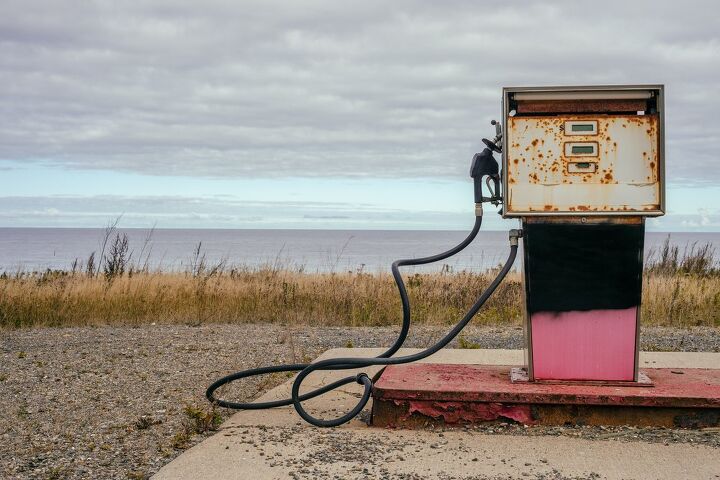



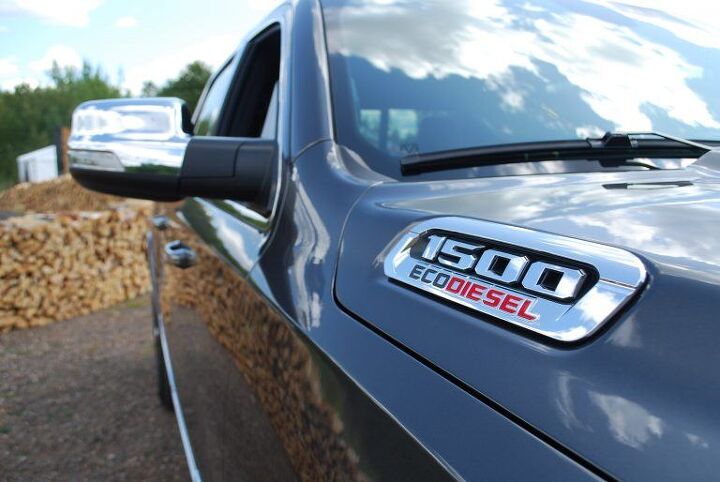




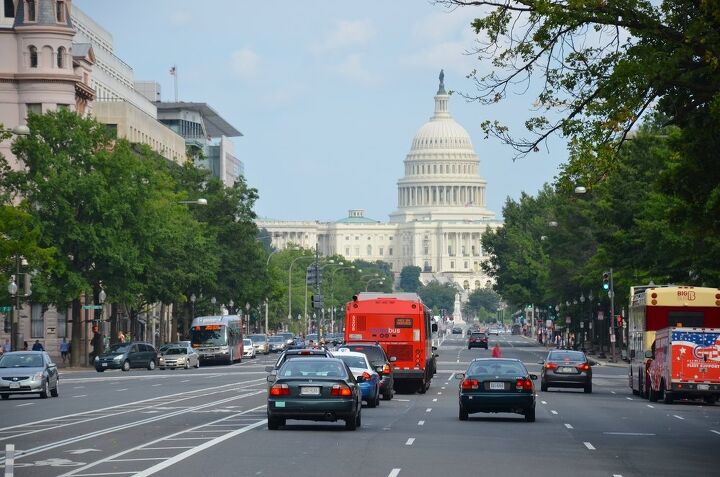

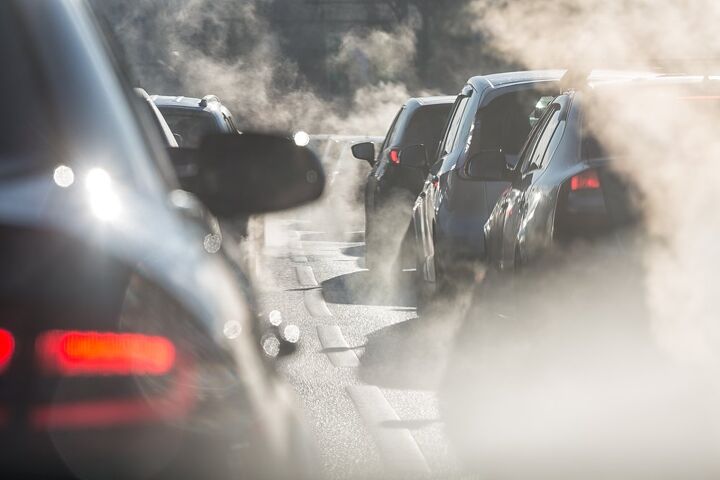

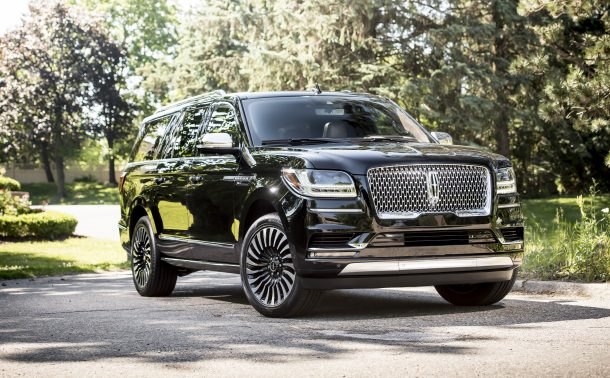












Recent Comments